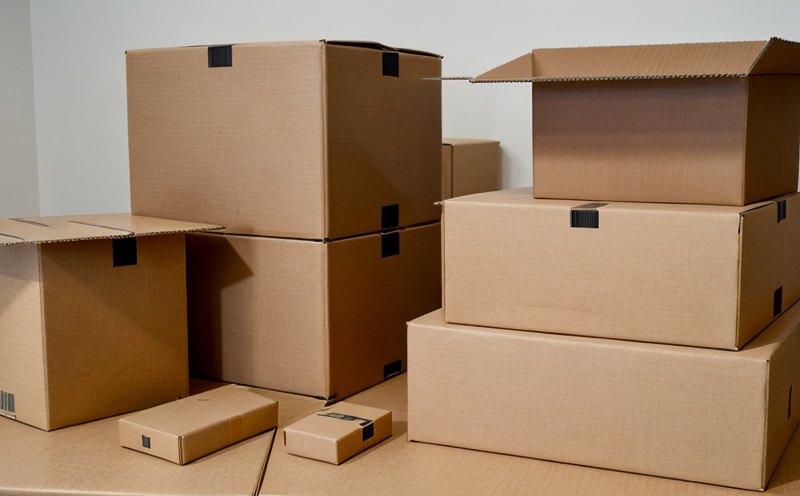ISO 11607 Seal Integrity for Rigid Containers
The ISO 11607 standard is a critical component of ensuring the integrity and safety of sealed containers used in packaging, particularly within the medical device and pharmaceutical industries. This test evaluates the seal quality of rigid containers to ensure they maintain their intended contents under specified conditions without leakage or contamination.
This service focuses on providing comprehensive testing solutions for sealing integrity as per ISO 11607:2006. The standard sets out a series of procedures designed to assess whether sealed packages are capable of protecting their contents from the environment and potential contamination during storage, distribution, and use.
The test is particularly important for products that require sterile conditions or have a high risk of contamination, such as medical devices and pharmaceuticals. By adhering to this standard, manufacturers can ensure compliance with regulatory requirements and provide consumers with confidence in the safety and quality of their products.
Our laboratory uses advanced equipment and highly skilled personnel to perform these tests accurately and consistently. The testing process involves subjecting sealed containers to various environmental conditions that mimic real-world scenarios. This includes temperature cycling, humidity exposure, and pressure changes, all designed to simulate conditions encountered during transport or storage.
During the test, we carefully monitor the container seals for any signs of failure such as cracking, bulging, or leakage. The results are then analyzed using statistical methods to determine whether the seal integrity meets the specified criteria outlined in ISO 11607:2006. If necessary, corrective actions can be taken based on these findings.
The importance of this test cannot be overstated, especially when dealing with products that require strict control over their environment. For instance, a breach in seal integrity could lead to contamination or loss of product quality, which would not only affect the reputation of the company but also pose serious health risks to end-users.
Our team works closely with clients throughout the testing process, providing guidance on sample preparation, test parameters, and interpretation of results. We offer a range of services including consultation on standard compliance, training for personnel involved in packaging development, and support during audits or inspections by regulatory bodies.
Scope and Methodology
The scope of ISO 11607:2006 covers the testing methods used to evaluate seal integrity for rigid containers. This includes containers made from materials such as metal, glass, or plastic that are designed to be sealed hermetically.
- Test Specimens: The test specimens must represent typical products and packaging configurations expected in real-world applications. Samples should ideally cover different sizes and shapes of rigid containers used by the client.
- Environmental Conditions: The test simulates various environmental conditions that could potentially affect the seal integrity, including temperature cycling between -20°C and +60°C, relative humidity ranging from 20% to 85%, and pressure variations up to ±20 kPa.
- Data Collection: Continuous monitoring of container seals is performed using specialized equipment. Changes in dimensions, appearance, or other indicators of seal failure are recorded and analyzed.
The methodology involves placing the sealed containers into a controlled environment chamber where they undergo the specified environmental conditions for defined periods. After each cycle, the condition of the seals is visually inspected and documented. If any issues arise during testing, further investigation may be conducted to identify root causes.
Our laboratory ensures that all tests are conducted strictly according to ISO 11607:2006 guidelines, ensuring accurate and reliable results. Compliance with these standards helps clients meet regulatory requirements and maintain high-quality standards in their products.
Quality and Reliability Assurance
- Calibration: All equipment used for testing is regularly calibrated to ensure precision and accuracy. This includes devices like vacuum chambers, temperature controllers, and humidity meters.
- Data Accuracy: Our laboratory employs rigorous quality control measures to guarantee the integrity of collected data. Each test result undergoes multiple checks before being reported.
- Training: Staff members receive continuous training on the latest testing techniques and best practices related to ISO 11607:2006. This ensures that our team remains at the forefront of industry knowledge.
Our commitment to quality extends beyond technical expertise; it encompasses every aspect of our operation from sample preparation to final reporting. By adhering strictly to international standards, we ensure consistent and accurate results across all projects.
We understand the significance of reliability in maintaining customer trust and satisfaction. That’s why we maintain robust quality assurance processes that not only meet but exceed industry expectations. Our goal is to provide reliable testing services that help our clients achieve their business objectives while ensuring product safety and efficacy.
International Acceptance and Recognition
- Regulatory Compliance: Adherence to ISO 11607:2006 ensures that our tests are recognized globally by regulatory bodies such as the FDA (Food and Drug Administration) in the United States, EMA (European Medicines Agency), and other similar organizations worldwide.
- Credibility: By meeting this standard, clients gain credibility among their peers and customers who value product quality and safety. This can enhance brand reputation and customer trust.
The global acceptance of ISO 11607:2006 means that the results from our tests are widely acknowledged across industries. Whether you're a manufacturer operating locally or internationally, compliance with this standard provides peace of mind knowing your products meet stringent international standards for seal integrity.
Our laboratory is dedicated to helping clients achieve global recognition through consistent and accurate testing services. We strive to uphold the highest levels of professionalism and integrity in all our operations.





